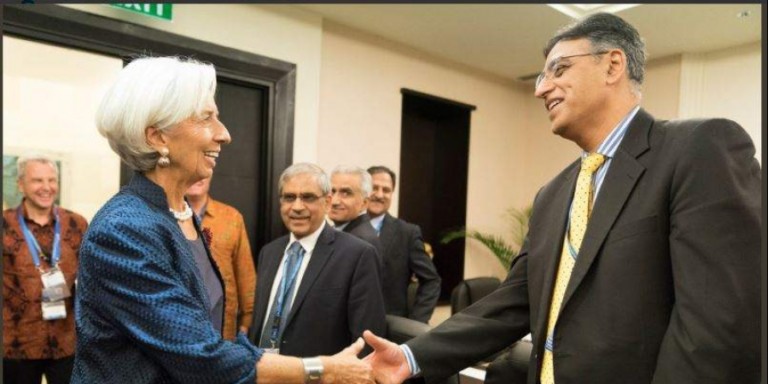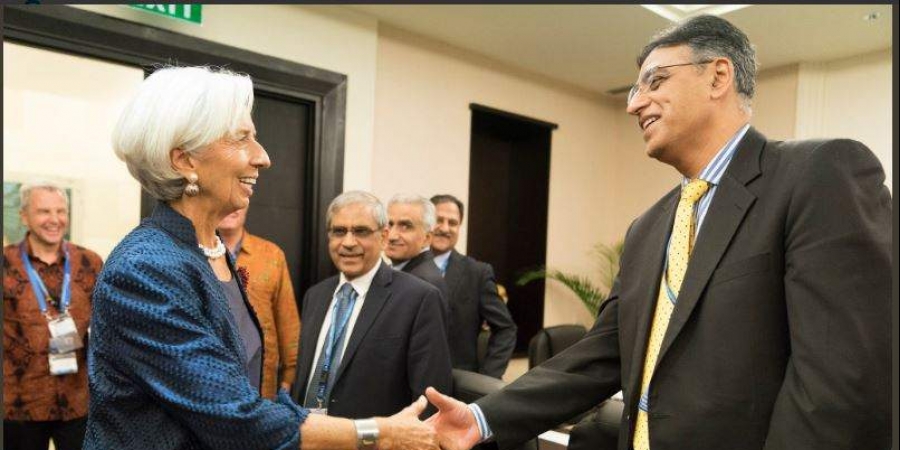
ISLAMABAD: Pakistan is ready to share details of the debt related to the China-Pakistan Economic Corridor (CPEC) with the IMF, Finance Minister Asad Umar has said while rejecting the US’ view that China-funded projects were to blame for the cash-strapped country’s current economic woes.
Speaking to the media here on his return from Indonesia where he requested International Monetary Fund’s Managing Director Christine Lagarde for a bailout package for Pakistan, Umar said the decision to approach the global lender was taken after consultations with friendly countries.
The IMF team, Umar said, was scheduled to arrive in Pakistan on November 7 to negotiate the program, likely to span over a three-year period. He said Pakistan’s current year debt repayments were about USD 9 billion but obviously it would not entirely be available from the IMF.
Lagarde has made it clear that the IMF would require absolute transparency on Pakistan’s debts, including those owned by China under the USD 50 billion CPEC.
The US has said that the huge Chinese debt was responsible for the economic challenges in Pakistan, adding that it will review Islamabad’s bailout plea to the IMF from all angles, including the country’s debt position.
“We understand that Pakistan has formally requested assistance from the IMF. In all cases, we examine that closely from all angles of it, including Pakistan’s debt position, in evaluating any type of loan program,” State Department spokesperson Heather Nauert said, adding this is something the US has been tracking fairly closely.
Umar said the US was a key stakeholder in the IMF with about 16.5 per cent votes but enjoyed no veto power in its decision making that required majority 51 per cent votes.
He said no government in Pakistan irrespective of any political background could compromise on national security and the Pakistan Tehreek-e-Insaf government, too, would not opt for an IMF program if conditionalities are of that nature.
But Umar said the government will have to take difficult decisions that would be painful for people but necessary under international commitments to get out of the current severe economic situation.
Reiterating that the government had decided to approach the Fund in consultation with friendly countries, he said that talks with these countries were still under way. He did not identify these countries but Islamabad was in contact with China and Saudi Arabia in recent weeks.
Unlike 2013, said the minister, the global environment was not favorable to Pakistan that was why the government thoroughly deliberated upon this matter before approaching the IMF. He said that Pakistan was facing a financing gap of USD 12 billion this year, adding that this gap would not be bridged by IMF alone.
“We will turn to friendly countries again if the IMF terms are unacceptable to Pakistan during talks on the program,” he asserted.
The minister said that he had been contending for quite some time that economic conditions could lead to national security issues and the government would not compromise on matters of national security.
He also said that Saudi Arabia, China and the United Arab Emirates had not placed tough conditions for bailing Pakistan out. But he declined to cite specific reasons why these countries had not provided any financial assistance to Pakistan, the report said. PTI







